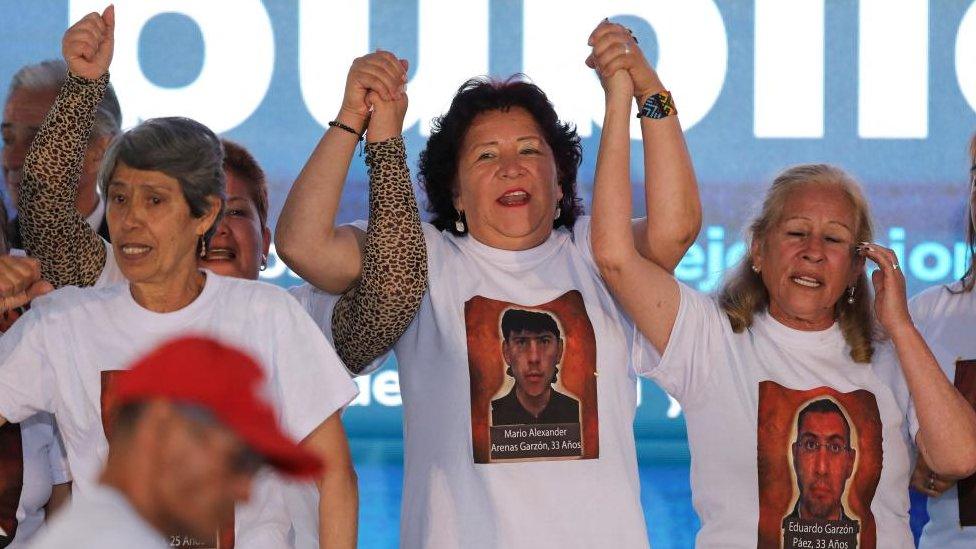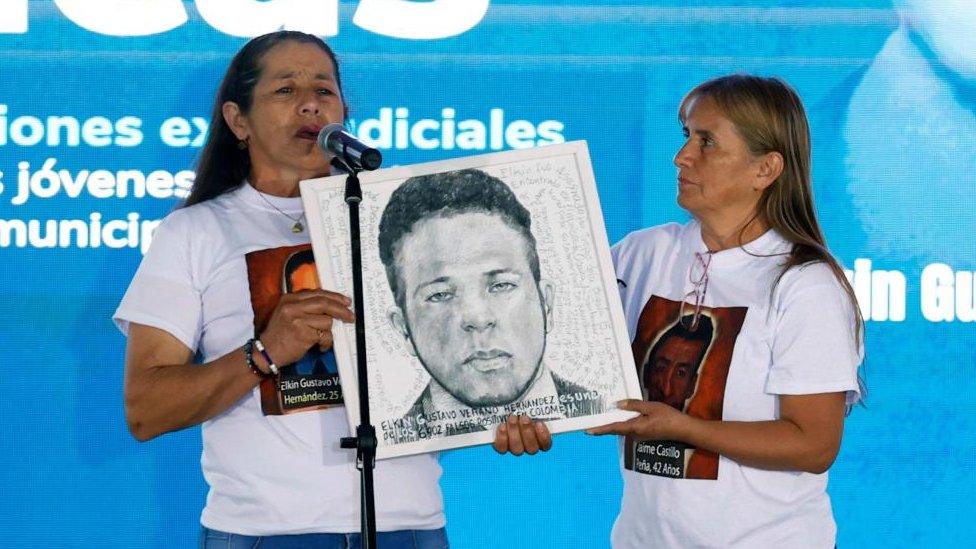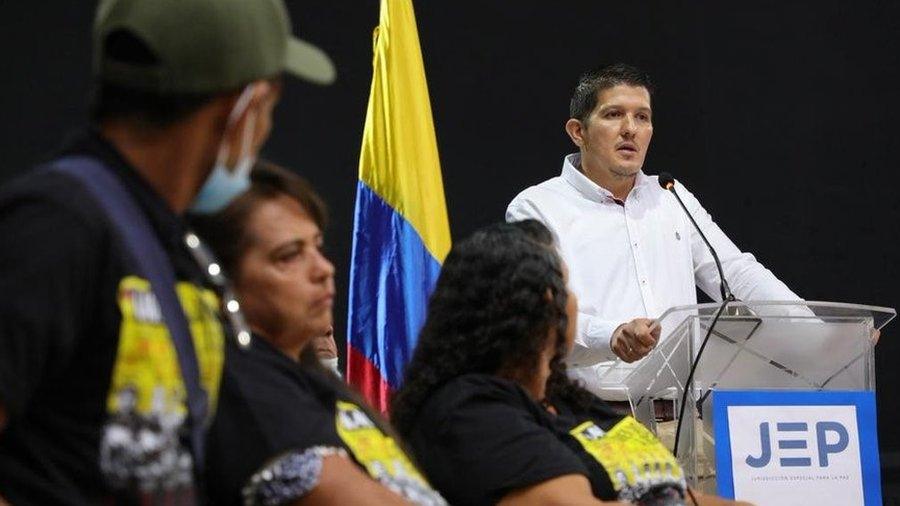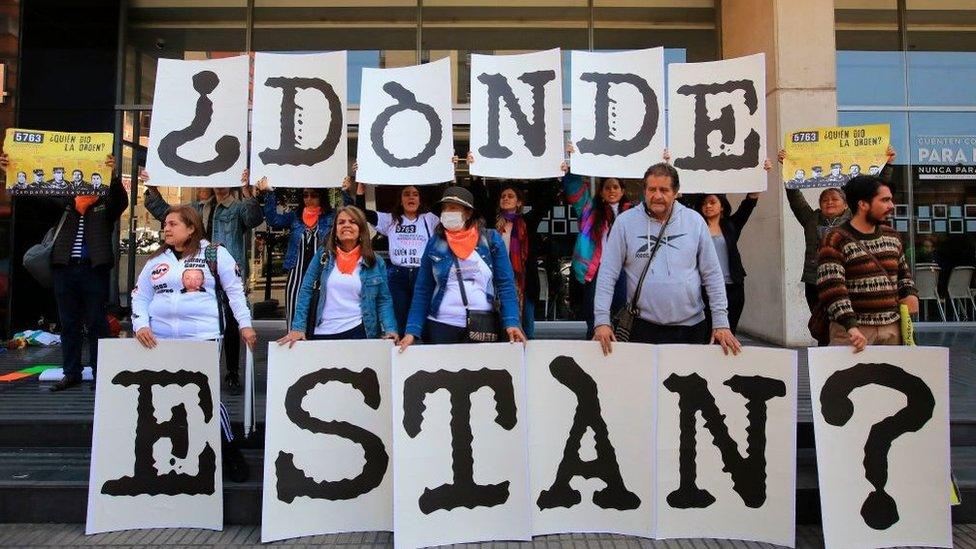'False positives': Colombian army apologises for killing civilians
- Published

Relatives of 19 of the victims were present at the ceremony in Bogotá
The Colombian army has apologised for killing thousands of civilians and falsely passing them off as left-wing guerrillas to boost its kill rate during the country's armed conflict.
An inquiry found that 6,402 civilians were murdered by the military between 2002 and 2008 and passed off as rebels in a practice dubbed "false positives".
In an event attended by mothers of some of the victims, the defence minister called the killings "shameful".
"They were not rebels," he added.
The commander of the Colombian army, Luis Ospina, said that "painful acts were committed by members of the national army that should never have happened".
Victims were young men mainly from poor neighbourhoods in and around the capital, Bogotá.
They were lured with promises of work to rural parts of Colombia, where soldiers executed them. They were then dressed in guerrilla fatigues or had weapons placed in their hands.
The army's aim was to give the impression that it was winning its fight against the Revolutionary Armed Forces of Colombia (Farc) guerrilla group.
Soldiers have testified that they were pressured by their superiors to drive up their "kill rate" and how they would be rewarded by being given promotions or extra days off.
For years, the relatives of the victims fought to have the truth about their loved ones known.
On Tuesday, in an event held in Bogotá's main square, Colombia's Minister of Defence Iván Velásquez apologised to them.
"We're standing here before the victims, before the Colombian society, before the international community, to say sorry," Mr Velásquez said.
Gustavo Petro, Colombia's first ever left-wing president and a former rebel with the M-19 group, arrived hours late but also asked for forgiveness for what he compared to a "genocide".
The relatives of 19 young men who were executed near the Venezuelan border and passed off as rebels were present at the ceremony.
Each took to the stage and said the name of their murdered loved one.
Some of them expressed their disappointment that the apology had taken more than 15 years to be issued.
Others said that it should have come from former president Álvaro Uribe, under whose leadership the vast majority of "false positives" were carried out, and his then-defence minister, Juan Manuel Santos.
"It should have been Juan Manuel Santos who should have been present to show his face and ask us for forgiveness," Florinda Hernández, whose son Elkin was killed in 2008, said.

Florinda Hernández (left) held up a drawing of her son Elkin, who was killed by the army in 2008
Lucero Carmona said that "today my family and I are not granting forgiveness" while Jackelin Castillo, who leads the group representing the mothers of the "false positives" victims, said that "our fight does not end here, we will continue to search for the real culprits, those who gave the order to commit these crimes".
The Special Jurisdiction for Peace (JEP), a transitional court system set up as part of the peace deal the Colombian government reached with Farc rebels in 2016, has been investigating the "false positives".
More than 700 members of the security forces have so far given evidence and in August, the former commander of the Colombian army, General Mario Montoya, was accused of being behind 130 "false positives".
Related topics
- Published27 April 2022

- Published18 February 2021
